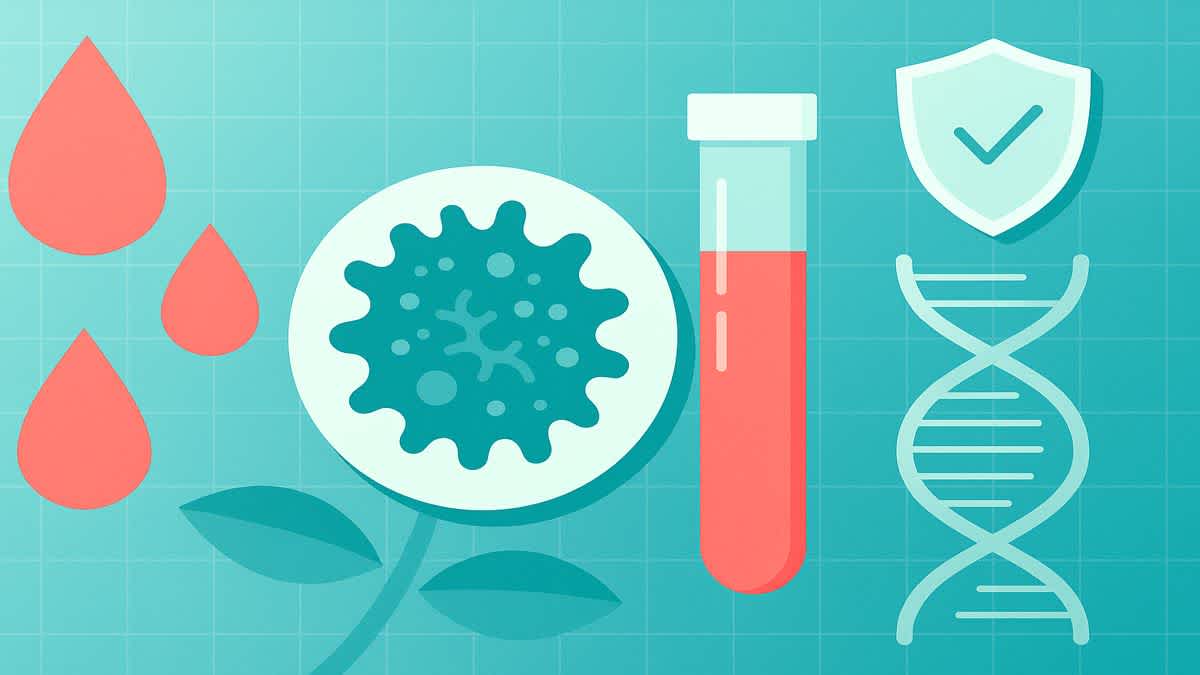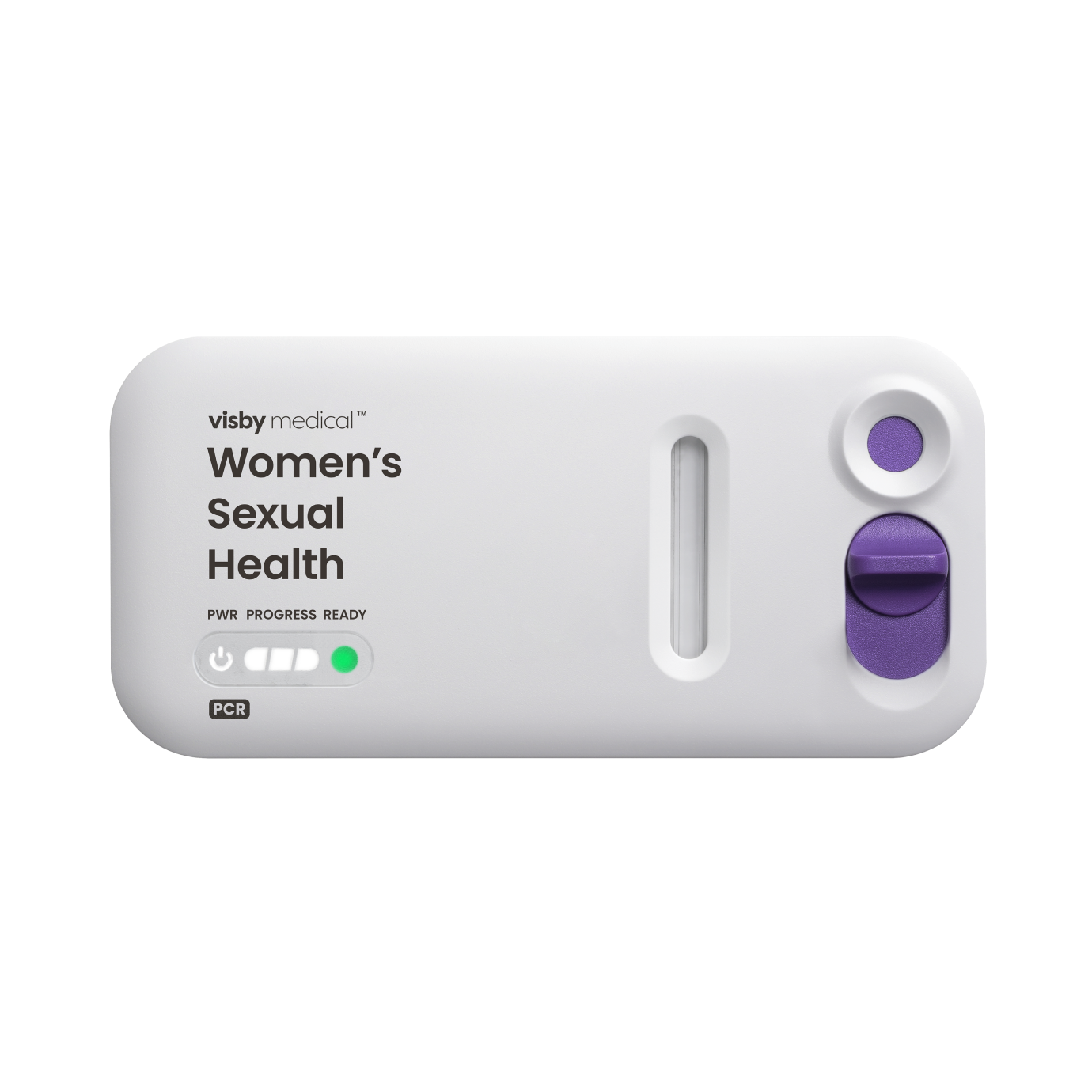Written by Jillian Foglesong Stabile, MD, FAAFP, DABOM
Blood Tests for Cancer Detection: What to Know
Cancer is one of the leading causes of death worldwide, but early detection significantly improves the chances of successful treatment and survival.[1] While traditional methods like imaging and tissue biopsies are commonly used, blood tests are playing an increasingly important role in detecting cancer early and monitoring its progression.[2] But how effective are they, and what can they really tell you?
In this article, we’ll explore what blood tests can reveal about cancer, the different types available, and how they fit into a broader cancer screening strategy.
Can a Blood Test Detect Cancer?
In many cases, yes—but with caveats. Some blood tests can detect signs that suggest cancer may be present in the body, but they usually aren’t definitive on their own.[3] Blood tests can identify abnormal levels of certain proteins, cell counts, or even fragments of tumor DNA, which may indicate the presence of cancer or prompt further diagnostic testing.[4]
Importantly, not all cancers can be detected through blood tests, and a normal result does not always mean cancer is absent.[3] Blood tests are typically used in conjunction with other diagnostic tools.[2]
Types of Blood Tests Used for Cancer Detection
Your healthcare provider may recommend a number of blood tests to help detect cancer.
1. Complete Blood Count (CBC)
A CBC measures different components of your blood, including red blood cells, white blood cells, and platelets. Abnormal counts may be a sign of blood cancers like leukemia or lymphoma.[5]
For example, a very high or low white blood cell count could indicate leukemia. Similarly, low red blood cell counts (anemia) or abnormal platelet levels can also be warning signs, though they may result from other conditions.[5] While a CBC can signal a potential issue, it is not specific to cancer and usually prompts further investigation.[5]
2. Tumor Marker Tests
Tumor markers are substances—often proteins—produced by cancer cells or by the body in response to cancer. Common tumor marker tests include:[6]
- Prostate-specific antigen (PSA): Elevated levels may indicate prostate cancer.
- CA-125: Associated with ovarian cancer.
- Carcinoembryonic antigen (CEA): Linked to colorectal and other cancers.
- Alpha-fetoprotein (AFP): May be elevated in liver or testicular cancers.
- CA 19-9: A protein marker associated with pancreatic cancer.
Tumor markers are often used to monitor treatment rather than diagnose cancer, as levels can also rise in non-cancerous conditions.[6]
3. Liquid Biopsies
Liquid biopsies analyze fragments of DNA from tumors (circulating tumor DNA or ctDNA) found in the bloodstream. These tests are less invasive than tissue biopsies and can offer valuable insights into genetic mutations present in the cancer.[7]
This approach is particularly promising for tracking changes in tumors over time and identifying targeted treatment options. However, it may not detect all cancers, especially those that do not shed much DNA into the bloodstream.[7]
4. Multi-Cancer Early Detection (MCED) Tests
MCED tests, like the Galleri® test, detect signals from multiple types of cancer with a single blood draw. These tests analyze methylation patterns in DNA to identify the potential tissue of origin.[8]
Early research has shown promise, but MCED tests are still new and not yet a standard part of screening protocols.[8] They should be used in consultation with a healthcare provider.
What Blood Tests Can Reveal About Cancer
Blood tests can detect a range of cancer-related indicators:[3]
- Abnormal cell counts (CBC)
- Elevated protein levels (tumor markers)
- DNA mutations and tumor signals (liquid biopsy, MCED)
- Inflammation or immune response
These results often lead to additional testing like imaging (MRI, CT scans) or a biopsy to confirm a diagnosis.[2]
Blood tests can also help track how cancer is responding to treatment over time. For instance, falling levels of a tumor marker like PSA or CA-125 during therapy can indicate that the cancer is shrinking or responding well. In contrast, rising levels may suggest the need to adjust treatment or conduct further evaluations.
Can Routine Blood Work Detect Cancer?
Routine blood work, such as a standard CBC or metabolic panel, may sometimes reveal abnormalities that prompt further investigation.[5] However, these tests are not designed specifically to detect cancer and may miss early-stage or asymptomatic cancers.[2]
In general, healthcare providers rely on a combination of medical history, physical exams, lab work, and imaging to build a complete picture of your health. Routine tests are best viewed as an early alert system—not a final diagnosis.
Accuracy and Limitations of Blood Tests for Cancer
Blood tests are powerful tools, but they are not foolproof. Here are a few limitations:[2,6]
- False positives: Non-cancerous conditions (like infections or benign tumors) can cause abnormal results.
- False negatives: Some cancers don’t produce detectable markers, especially in early stages.
- Limited scope: Most blood tests are best used in combination with other diagnostic methods.
That’s why blood tests are often considered one piece of a larger diagnostic puzzle rather than a standalone solution.[2]
Researchers are continuing to improve the sensitivity and specificity of these tests. Advances in genomic testing, machine learning, and biomarker discovery may expand the range of cancers detectable through blood and reduce the rate of false results.
FAQs: Common Questions About Cancer and Blood Tests
What type of blood test can detect cancer? Tumor marker tests, liquid biopsies, and complete blood counts can all suggest the presence of cancer, though further tests are needed to confirm.[3]
What is a cancer marker in a blood test? A cancer marker is a substance—often a protein or hormone—produced by cancer cells or in response to cancer.[6]
What is the signature blood test for cancer? There is no universal blood test for all cancers. However, tests like the Galleri® test are emerging as potential multi-cancer early detection tools.[8]
Will cancer show up in a routine blood test? Sometimes, but not always. Routine tests can hint at problems that lead to further investigation.[5]
Does colon cancer show up in routine blood work? Not directly, but signs like anemia may prompt further testing like a colonoscopy.[5]
What is the hardest cancer to detect? Pancreatic and ovarian cancers are often harder to detect early due to a lack of symptoms and reliable screening tools.[4]
Will a full blood count show cancer? It can indicate blood cancers like leukemia but is not definitive for other types.[5]
When Should You Consider a Blood Test for Cancer?
You may consider getting a blood test if you:[2]
- Have a family history of cancer
- Are experiencing unexplained symptoms (fatigue, weight loss, persistent pain)
- Are age 50 or older
- Want to supplement routine screenings like colonoscopy or mammograms
Talk to a healthcare provider about your risk factors and whether a blood-based cancer screening is appropriate for you.[3]
People at higher risk—such as those with BRCA mutations or smoking history—may benefit from earlier or more frequent screening. Personalized plans may combine blood tests, imaging, and genetic risk assessment for a comprehensive approach.
How Everlywell Can Help
At Everlywell, we offer convenient at-home lab tests that help you take charge of your health. While not diagnostic for cancer, our 360 Full Body Test provides a comprehensive view of key health markers—an excellent tool for those wanting to monitor well-being and catch issues early.[9]
Take a proactive step. Explore our 360 Full Body Test to better understand your health today.
References
- American Cancer Society. Multi-Cancer Early Detection Tests. 2023.
- Mayo Clinic. Cancer diagnosis: 11 tests used to diagnose cancer. 2023.
- Cleveland Clinic. Blood Tests for Cancer. 2023.
- FDA. FDA Approves Multi-Cancer Detection Test. 2022.
- City of Hope. Cancer Blood Tests. 2023.
- National Cancer Institute. Tumor Markers. 2022.
- MD Anderson Cancer Center. Which blood tests show cancer? 2023.
- Wesley Healthcare. Can a blood test detect cancer in the body? 2023.
- Everlywell. 360 Full Body Test. 2024.











